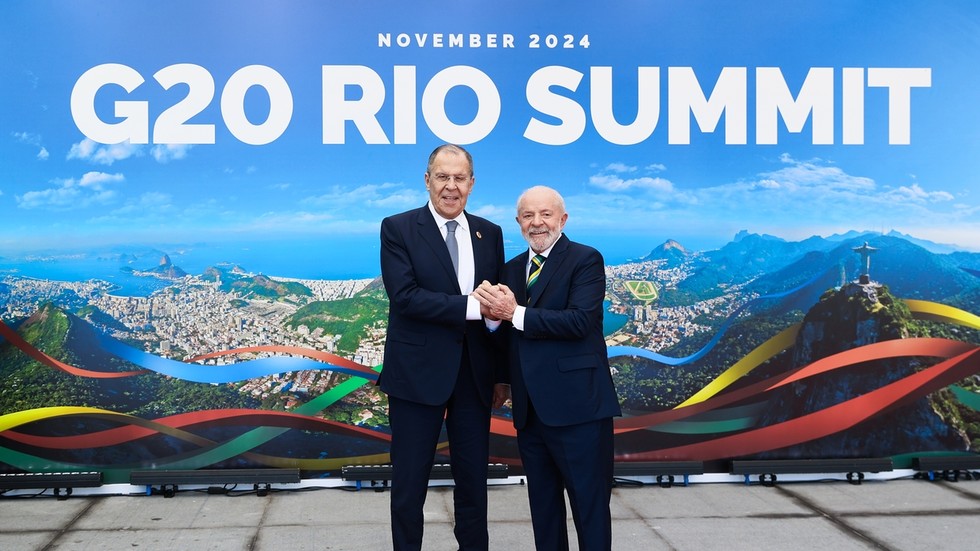The recent Group of Twenty (G20) summit held in Rio de Janeiro, Brazil, from November 18 to 19, yielded significant agreements, according to Russian Foreign Minister Sergey Lavrov. Representing Russia in lieu of President Vladimir Putin, Lavrov characterized the outcomes of the summit as “very positive” during his press conference after the event. The focus of the summit was on addressing various global challenges, culminating in notable commitments from member states that aim to tackle pressing issues such as poverty, hunger, food security, and sustainable development. The idea of establishing a new coordinating structure to combat global hunger and poverty received unanimous support from summit participants, reflecting a collective ambition to work toward eradicating hunger by the year 2030, in line with the Sustainable Development Goals set forth by the United Nations.
Lavrov acknowledged Russia’s proactive role in contributing to the global initiatives aimed at improving food security. He stated that Russia has already initiated various programs dedicated to supporting developing countries and enhancing food security on an international scale. During the summit, he highlighted Russia as a “reliable and leading global supplier,” emphasizing its commitment to bolstering food and energy security. This framing positions Russia as an essential player in addressing global challenges, potentially reshaping its geopolitical standing amid ongoing criticisms from Western nations.
In addition to addressing hunger and poverty, Lavrov presented the Greater Eurasian Partnership initiative, a concept proposed by President Putin that seeks to foster connections between Europe and Asia to ensure regional stability and security. By advocating for this partnership, Russia aims to create a more integrated economic space that could alleviate tensions and encourage collaboration among countries situated in these pivotal regions. Lavrov’s presentation of this initiative underscores Russia’s intent to expand its influence in Eurasia while promoting a vision of cooperation that counters Western narratives.
The summit also provided a platform for contentious discussions, particularly regarding the situation in Ukraine. Lavrov noted that, despite Western countries pushing a singular focus on Ukraine during the summit, other nations successfully advocated for the inclusion of various global conflicts in the broader dialogue. This speaks to a growing complexity in the international arena where multiple issues must be addressed to achieve consensus. Ultimately, Lavrov expressed that Russia consented to the final declaration’s inclusion of a clause on Ukraine, which he interpreted as a call for “honest and reasonable conversation about peace on realistic grounds.” This acknowledgment indicates a potential openness to dialogue, although the specifics of such conversations remain to be seen.
The wider G20 declaration, spanning 22 pages, touched upon a range of critical topics beyond the Ukraine conflict. Among the key points discussed were a call for a ceasefire in Gaza, proposals for taxing the super-rich, and the discussion of emerging technologies like artificial intelligence. Additionally, the summit addressed the importance of gender equality, highlighting the G20’s commitment to a more equitable global society. The diverse array of topics reflects the G20’s recognition of the interconnectedness of modern global challenges and the necessity for collaborative solutions.
Overall, the G20 summit in Rio is viewed by Russian officials as a turning point for international cooperation amidst a backdrop of geopolitical tensions. The various agreements reached illustrate the potential for collective action on significant global issues, even as complex political dynamics play out among member countries. As nations navigate their relationships and responsibilities on the world stage, the outcomes of this summit may serve as a foundation for ongoing discussions and collaborations aimed at fostering stability and finding solutions to urgent global challenges.

